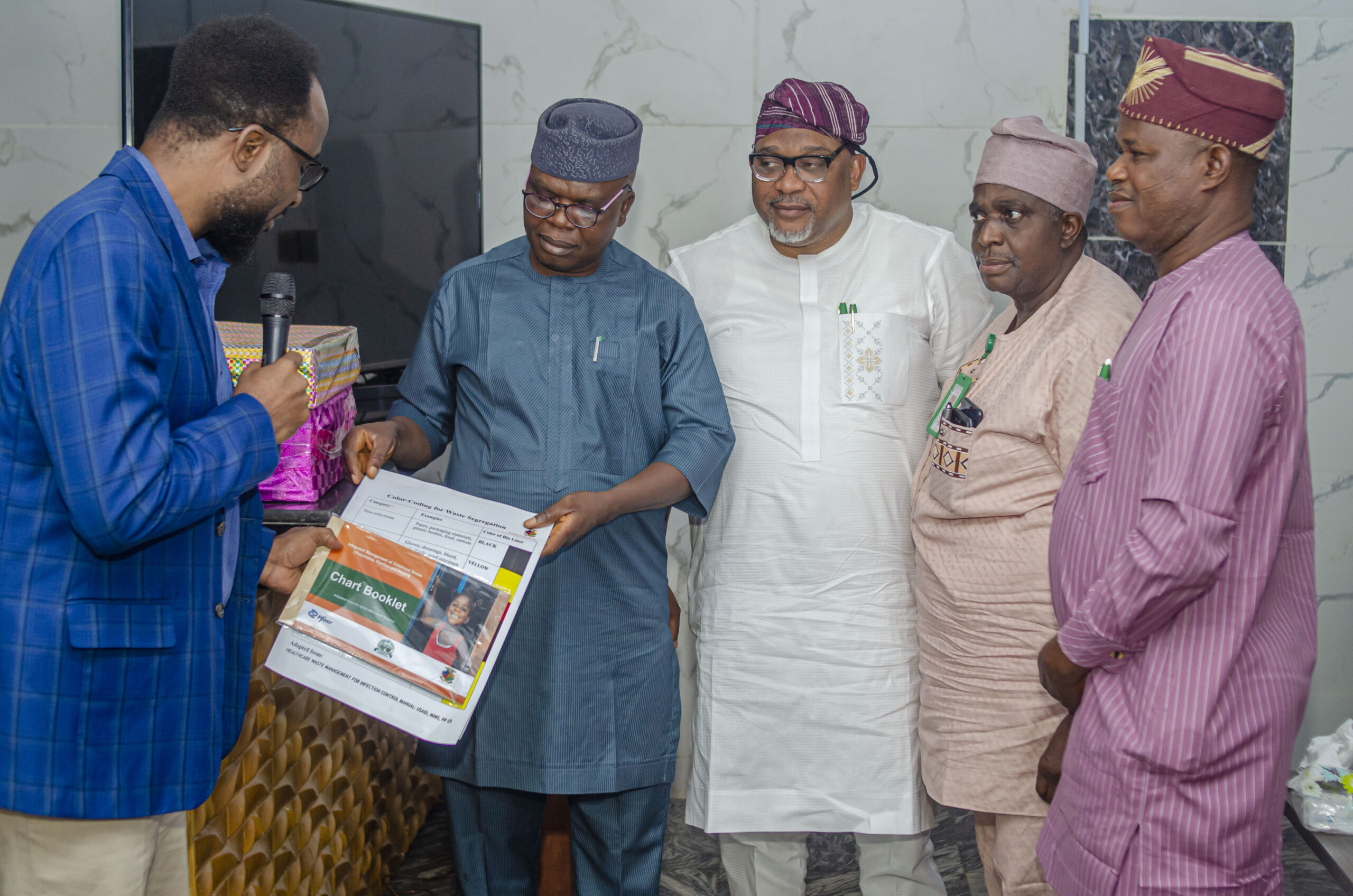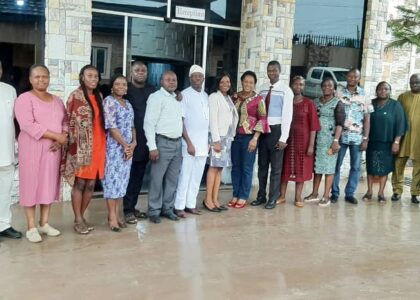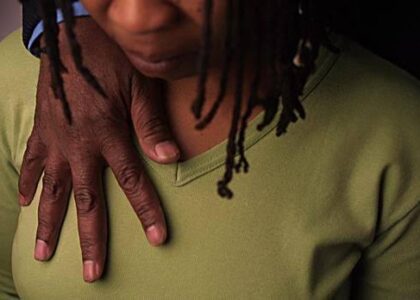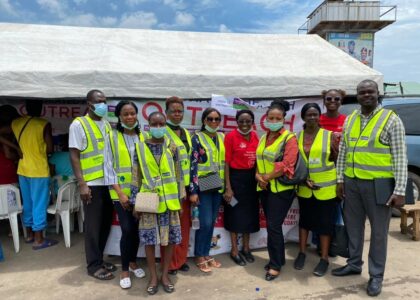“No Sodiq. I’m not up to having sex tonight and you can’t force me.” I heard the fear glazed voice stand out amongst the croaks of the frogs and excitement of crickets. I clenched the soft wool of the sofa where I sat. I had seen her face earlier in the day, her dark lens couldn’t conceal the bruises. They were a purple and black print across her eyes and a little across her cheek bones.
I heard her not so silent whimper, and then loud yelp. I could hear his voice too. It was like he was in a rig with a heavyweight champion. His grunts blended discordantly with her shrill. I tried to distract myself by increasing the volume of my TV but it was indeed a vain attempt. A woman like me was being forced by a man with animalistic desires. Her yells got louder and then muffled. No! I’m not going to keep quiet tonight; I’m calling a helpline.
***
Violence against women and girls is a prominent crisis which is not confined to the boundaries of geography, socio-economic class and culture. However, marginalized women, such as poor women and girls have been reported to experience it predominantly at the hands of their husbands or family members. Violence against women is one of the most common violations of human rights.
Violence against women and girls could take different forms which includes sexual violence, physical violence, child rape/ forced marriage and female genital mutilation. Violence against women and girls is deeply rooted in gender inequality and gender discrimination that have been plaguing women from time immemorial.
Statistics as projected by the ministry of women’s affairs and social development and the United Nations Population Fund (UNPFA) Nigeria with support from the Norwegian Government found out that 28% of Nigerian women aged 25-29 have experienced some form of physical violence since age 15.
Violence Against Women is one of the most widespread violations of human rights and has a long-term devastating effect on the lives of women, their communities and wider society.
Causes of Violence Against Women
Patriarchy: many perpetrators believe that violence toward women and girls is normal or an appropriate behavior because of the patriarchal inclination of most ethnic groups in Nigeria. The perpetrator believes he has a right to abuse because he is the man.
Lack of Financial Independence: The Center for Health Ethics Law and Development (CHELD), a group comprising lawyers, doctors, health professionals, social scientists, economists, public health specialists, gender specialists and statisticians that promote public health in Nigeria and other African countries, believe many cases of violence against women in Nigeria are influenced by financial factors.
In its 2015 report on Violence Against Women in Nigeria and the Need for a Women’s Fund, CHELD noted that these factors range from husbands preventing their wives from working or denying them funds for necessities such as children’s school fees, health services and even food.
Furthermore, teenage girls have become victims of abuse because of dependence on an extended family member for feeding and education. Many women and girls have also been reported to have remained in an abusive relationship or environment because of the fear of financial insecurity.
Gender-stereotyping norms: practices that support male dominance or entitlement in different institutions are also associated with attitudes tolerant of violence against women and girls. For instance, workplace policies that project women as subordinates to the men foster chauvinism and dominance over women, hence a male colleague could feel entitled to manhandle a female colleague in the heat of an argument.
Violence as a Punitive measure Against Women: the belief that husbands have the right to physically “discipline” their wives under certain conditions have hugely led to violence against women. Placement of individual and family privacy and honour above the safety and wellbeing of girls and women who experience violence.
Ways to Address Violence Against Women;
Prevention through awareness: since VAW is deeply rooted in gender inequality and discrimination, it is important that members of the public which include potential perpetrators are well educated about the damaging effect of every form of domestic violence. Such preventive measures should be extended to academic institutions, religious institutions and the grass root. Prevention requires political commitment, implementing laws that promote gender equality, investing in organizations that promote women health, and addressing the multiple forms of discrimination women face daily.
Economic Empowerment: Violence locks women and girls into poverty. It inhibits women’s from expressing their full potential. Poverty exposes them to further violence and a lack of options when violence occurs. Therefore, one of the ways to end VAW is to empower vulnerable women and girls economically. A female in a violent environment should be rescued and empowered to earn a livelihood or pursue an education.
Technology Deployment: advancement in technology should be claimed to rescue women in violent environments. Technological advancement can also be deployed to aid prompt reporting of Violence Against Women.
Violence against women and girls not only devastates women and girls’ lives, it also divides communities and undermines efforts towards development. Violence against women and girls impedes the building of strong democracies and peaceful societies.
This article was developed by Temitope Olawunmi drawing from the reference below:
African Renewal Journal available on https://www.un.org/africarenewal/news/nigerian-women-say-%E2%80%98no%E2%80%99-gender-based-violence# Retrieved on April 7th, 2021
World Health Organization fact sheet available on https://www.who.int/news-room/fact-sheets/detail/violence-against-women
For more insightful contents from the Communications department, watch this space.
You can also follow us on social media:
LinkedIn: Equitable Health Access Initiative
Twitter: ehainigeria
Instagram: ehainigeria
Facebook: Equitable Health Access Initiative
Youtube: Equitable Health Access Initiative
Join the conversation: drop your comments here and we love to be stalked on social media









